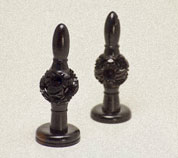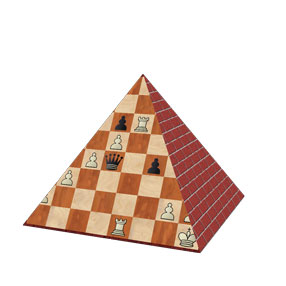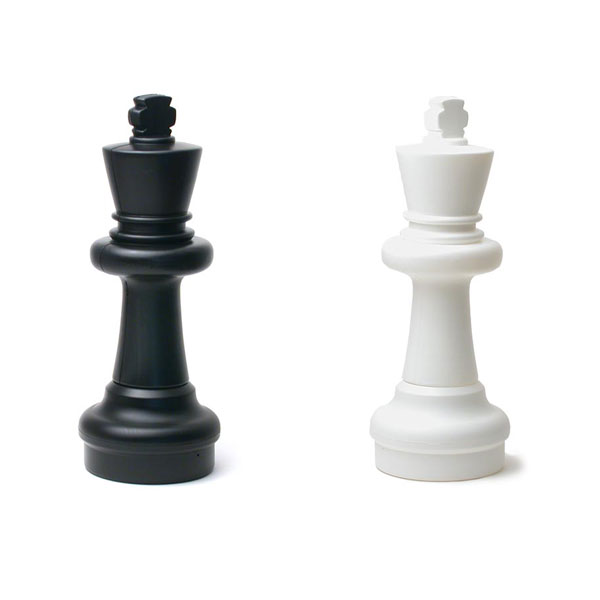Total Chess: Win, Lose or Draw

When you put the opponent in checkmate, you win the game. When the opponent puts you in checkmate, you lose the game. The game ends with checkmate.
There is another way for you to win the game, though, and that is when the opponent gives up or resigns. It may not be checkmate yet, but the opponent may think he has no chance to win the game, or even to get a draw. He wants to quit right away, before the checkmate comes.
To resign a game, you simply say, “I resign,” or, “I give up,” and the game is over. Or, you can tip over your king, which is another way of resigning without saying anything. The opponent will not mind since he has won the game, and he does not have to bother checkmating you. You both save time.
Do not resign, though, unless you are sure you cannot win and you cannot get a draw. Be certain the opponent knows how to checkmate you, not stalemate you. Once you resign, you have no chance to come back and win the game, or to get a draw. Usually, if you have been outplayed the whole game, then the opponent probably knows how to checkmate you. You can say, “I resign,” or tip over your king. What happens if you tip over your king accidentally? Does that mean that you resign? No. Just pick it up and keep on playing, just as you would if you accidentally tipped over any other piece.
What happens if you do not finish the game? Does the person who is ahead on points win? No. This is called an unfinished game. Neither player wins and neither player loses, and you may finish the game later. If you plan to finish it later, it is called an adjourned game. If you have used scorekeeping to record the game, you can replay the moves up to that point and then continue. Or, if you have used chess diagramming to write down the position, you can reset the pieces and then continue.
Many games do not end in a win or a loss, but in a draw, a tie. There are three basic ways for beginners to draw a chess game.
1) Stalemate: Stalemate happens when your king is not in check, but any move you make would put your king in check. You are not allowed to make a move that puts your king in check, so you are not allowed to move. You are also not allowed to skip your turn. When it is your turn to move, you must move. The game ends because it is your turn to move, but you cannot move. This is stalemate. It is kind of like a tie game in tic-tac-toe. The game ends when one player has no more moves. Neither player wins since neither player got checkmate. The game ends in a draw.
2) Mutual agreement: If you and the opponent both agree to call the game a draw, then it is a draw. This is called a draw by mutual agreement. One player may ask, “Do you want a draw?” or just, “Draw?” The other player may say, “Okay,” or, “Yes,” and the game is a draw. Or they may say, “No,” or just keep on playing, which means no. It does not matter who asks for the draw and who agrees to it. Either player may ask, and the other player may agree or disagree. If they agree then the game is over and it is a draw. If they disagree, then the game goes on, and either player may ask for a draw again later. Do not ask for a draw on every move, though. That is bad sportsmanship.
3) Insufficient material: When there are not enough pieces left on the board for either player to get checkmate, then it is a draw due to insufficient material. You could play on forever and never be able to checkmate each other. There are just not enough pieces left to do it. Stop playing and call the game a draw.
What is enough material to get checkmate, and what is not? This is easy to decide. You need at least five points to get checkmate against a lone king. This means you need either a queen, or a rook, or two bishops, or two knights, or one bishop and one knight. What about a pawn? A pawn by itself is not enough to get checkmate. But a pawn that reaches the last rank can promote to a queen, and then that is enough to get checkmate.
Even if you have enough material for checkmate, you may not get checkmate. The opponent may play well enough to prevent checkmate. Or, he may play poorly enough to allow checkmate. The game only ends in a draw due to insufficient material if it is impossible for either player to get checkmate. The simplest case is a lone king against a lone king. Other cases are a king and a bishop against a king, and a king and a knight against a king.
***
From the book, “TOTAL CHESS: Learn, Teach and Play the Easy 1-2-3 Way,” by John Herron
TOTAL CHESS is your complete guide to chess. It covers everything: rules, strategies, tactics and checkmates.
Everything in chess comes in threes. Three simple strategies are presented for the opening, midgame, endgame, etc. Each lesson is brief and covers one concept in simple language that everyone can read and understand.











Comments: